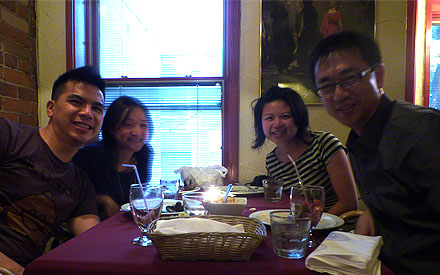Among many of my Canadian friends, even those from the engineering program, I am known as a designer. In fact, however, I do not have work experience as a designer, and I cannot call myself a professional designer. Having said that, I call myself designer since I have design skills, designer’s way of thinking, and designer’s spirit.
I am not particularly interested in genetic issues, but some internet articles about genetic engineering caught my attention thanks to its title: designer baby. According to some of those internet articles, a U.S. company has developed a technology to predict features of a person, such as eye colour and muscle performance, based on the parent’s genetic information before making a baby. Now the company is under fire due to this controversial technology. If this technology is applied, people can choose an ideal partner among candidates to get a preferable baby, and this is called “designer baby”.
I don’t want people to use the term “designer” in this context. Anyways. And I’m skeptical about this technology: I know many brothers and sisters who have very different features. For example, my elder brother is shorter than I am and he has shorter legs than mine. Anyways.
This issue reminds me of a Japanese internet article about a young Japanese actor. According to the article, a young actor joined an event to introduce a film in which he played one of the leading roles, and confessed that he is a son of a famous actor. He joined the event with the director of the film and another leading actress. The director used to be an actor, and the actress is a daughter of the director. The young actor said “I admire my father as an actor, and I am proud of being his son. I believe in my father’s DNA.” The actress then said “I admire my father too.” And then the director said “DNA is not a big deal. It’s not about who are your parents. It’s how you spend time with your parents.”
In fact, many celebrity’s children are known for their immature behavior. They have been overly spoiled, and this may be why the young actor had not stated that he is a son of a celebrity. It’s not about DNA, but how people live.
Now, I tell myself: it’s not about occupation, but how I live as a designer. Of course I have not given up becoming a professional designer. But whatever my occupation is, I retain my designer’s spirit.


